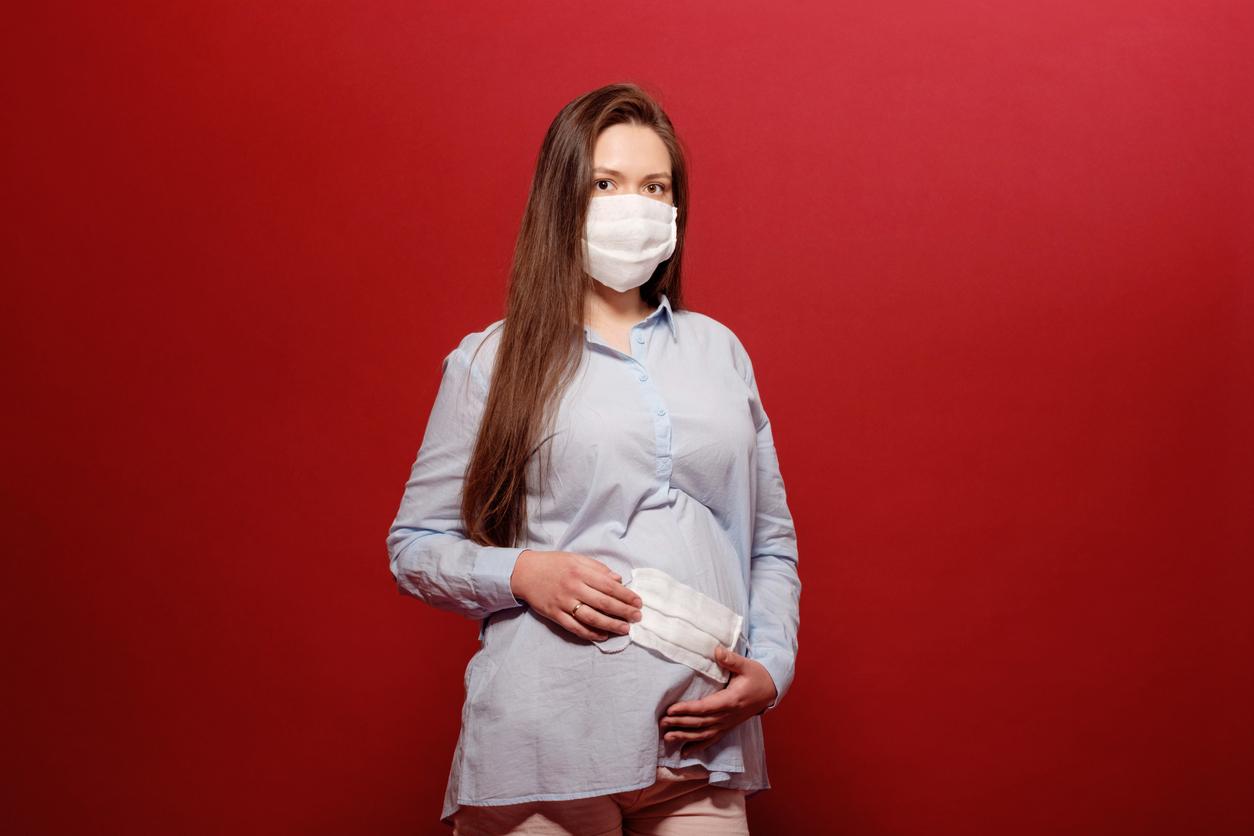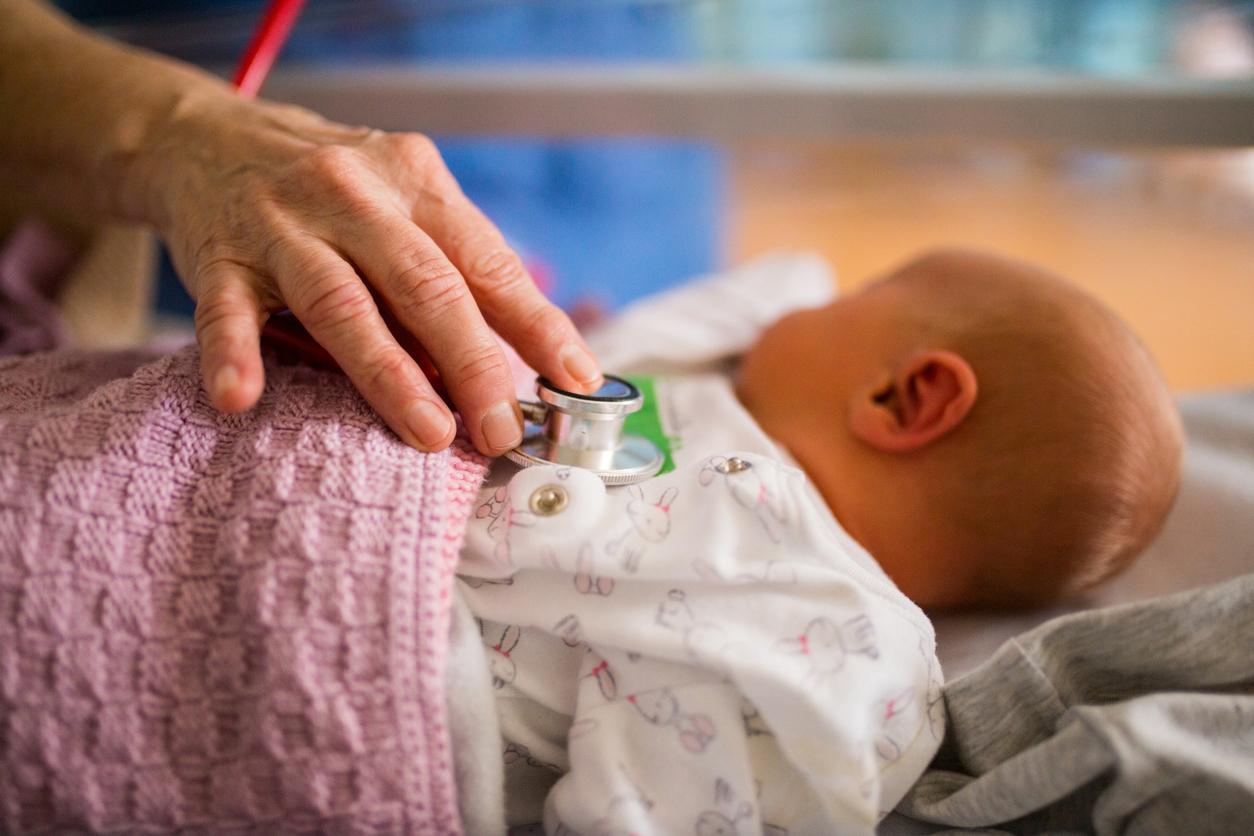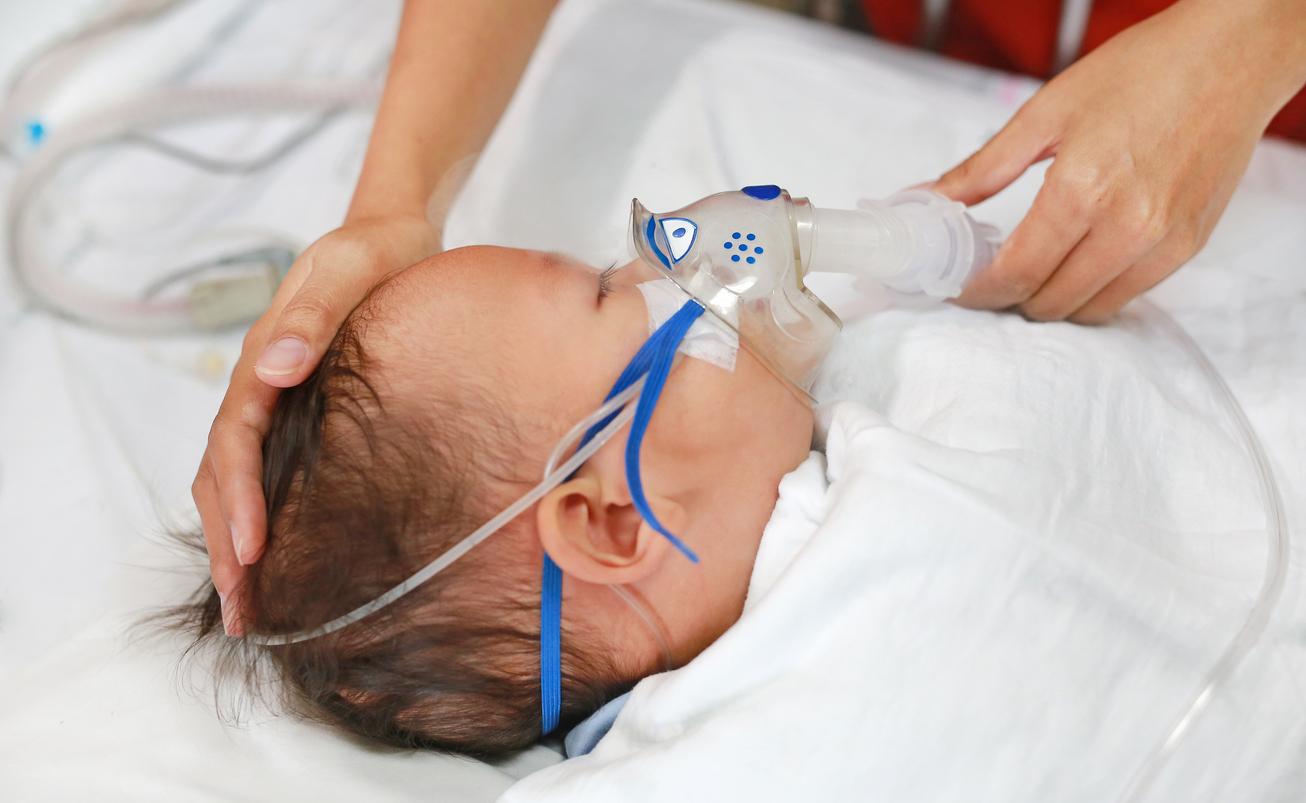The new bronchiolitis vaccine reserved for pregnant women, which obtained the green light from Brussels last August, should arrive on the French market for winter 2024.

- The bronchiolitis vaccine, developed by Pfizer and sold under the brand name Abrysvo, has obtained all the green lights from European authorities.
- It should be offered to pregnant women for the 2024-2025 winter season.
- This vaccine protects babies from severe forms of bronchiolitis.
Health professionals and young parents will soon be able to count on one more weapon to protect babies from respiratory syncytial virus (VRS)responsible in particular for bronchiolitis. The vaccine, developed by the American laboratory Pfizer and sold under the brand name Abrysvoshould be available in France by winter 2024.
Abrysvo : a vaccine against bronchiolitis expected for the next winter season
This bronchiolitis vaccine has the particularity of having to be administered during pregnancy. “The women pregnant vaccinated produce antibodies that cross the placental barrier. Mothers thus transmit them to fetuses who are therefore immune.“explained to BFM TV virologist Marie-Anne Rameix-Weltiresearcher at the national reference center for respiratory viruses at the Institut Pasteur and at INSERM. “For newborns, we talk about passive immunization.”
Although the product has obtained all the green lights from the authorities, several steps remain to be taken and should therefore not be offered to future mothers before the next winter season. The news site resumes a framework note stating: “the vaccination methods, the target population and the organizational aspects will be specified by the health authorities after advice from the High Authority of Health“, expected for May 2024.

Bronchiolitis vaccine: it protects babies from shapes serious
The vaccine Abrysvoadministered to pregnant women, will protect infants from bronchiolitis up to six months of age. This product will not completely prevent them from being infected with the virus VRS. However, it will limit the development of serious forms, thus reducing the risk of hospitalization and complications.
“This is the first time that we finally have a preventive treatment for infections with VRS severe”confided virologist Marie-Anne Rameix-Welti to our colleagues. “We have been looking for an effective means of prevention for years.“ After the discovery of the virus in 1956, the first vaccine trials had took place at the end of the 1960s, recalls the virologist. “But until now, we had no effective means with an attractive cost/benefit ratio.“

















